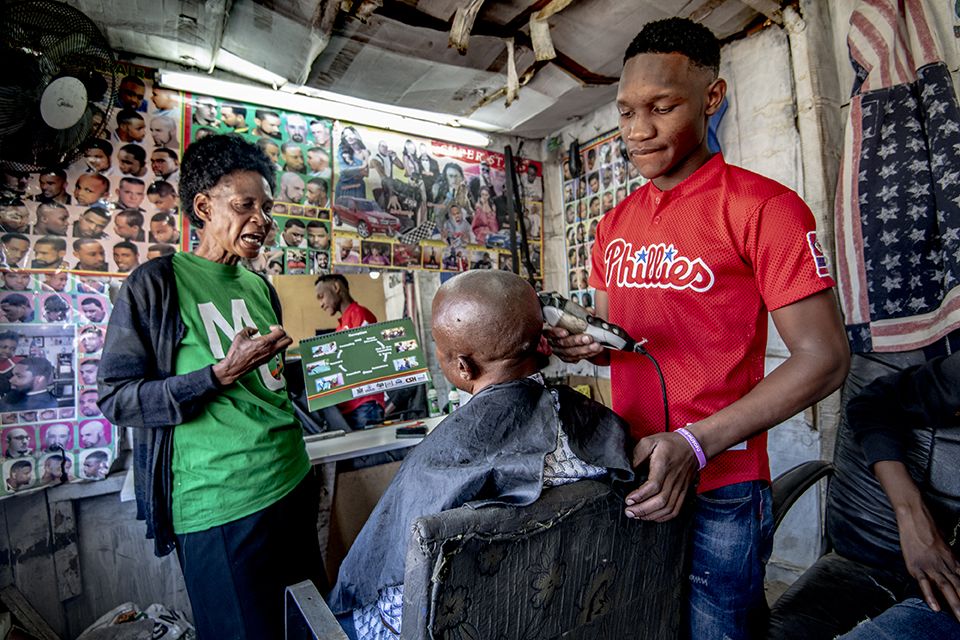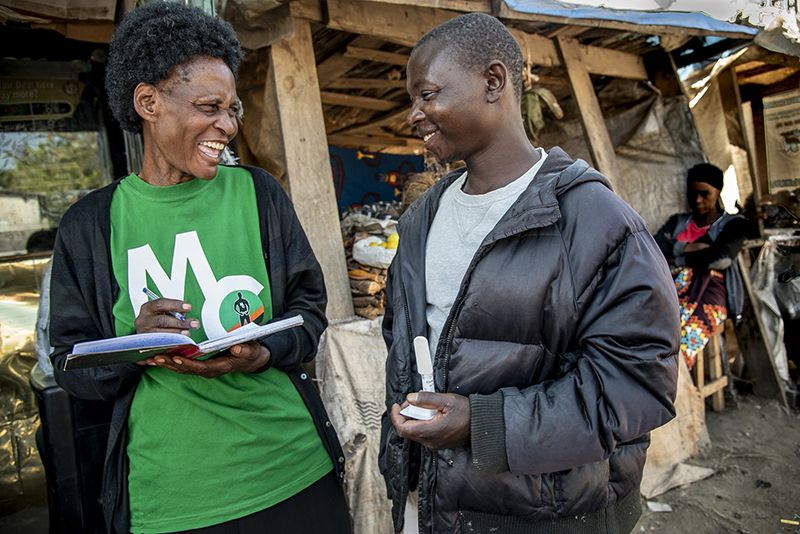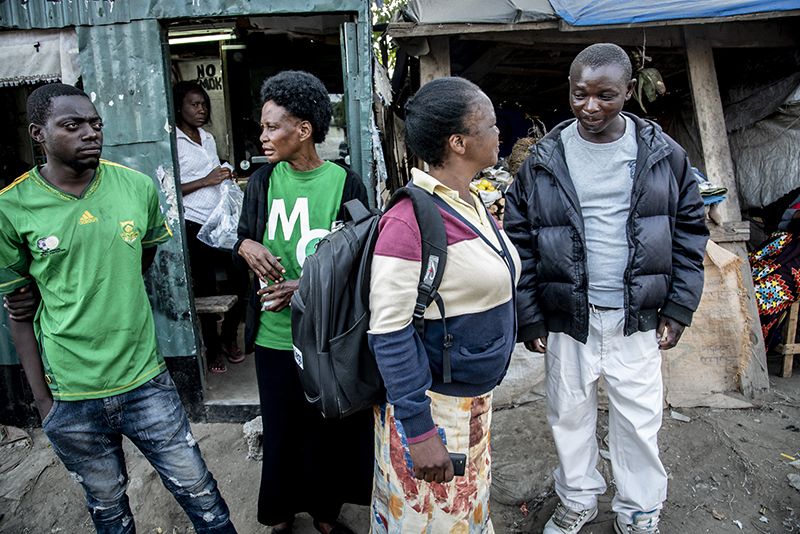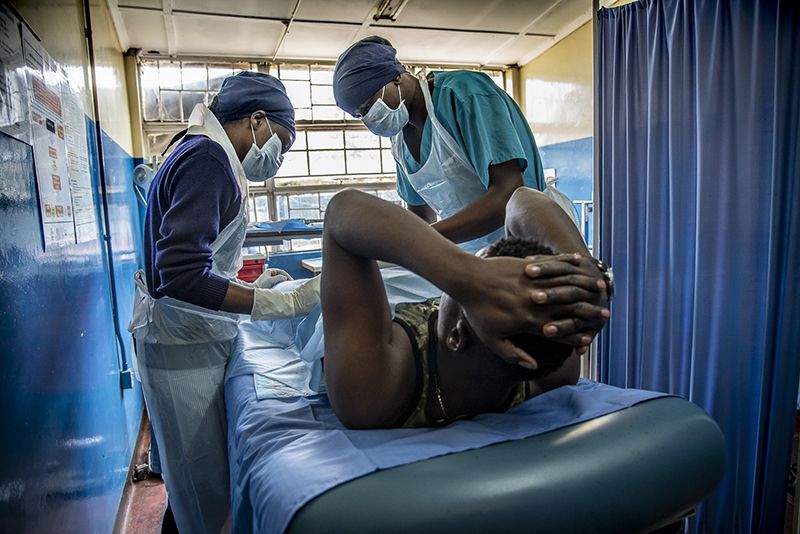
Why be shy about promoting circumcision?
It’s 5:00 a.m., and Violet Chizema Namiluko steps out of the house she shares with nine family members and into the commotion of George Township. Winding her way past makeshift shops and pit latrines, she dodges blaring minibuses bound for Zambia’s capital, Lusaka city.
As a volunteer health promoter for the George Health Centre, Violet spends her days out and about, talking about voluntary medical male circumcision (VMMC). It’s a task that takes the 58-year-old widow into barbershops, markets, bars, clubs, churches … any place men tend to frequent or congregate.
There are no “no-go areas,” Violet says, in terms of ferreting out potential clients who could benefit from VMMC. A safe, minor procedure, VMMC is part of a comprehensive HIV prevention strategy aimed at interrupting the transmission of HIV to save lives. Studies have shown that VMMC reduces female-to-male HIV transmission by approximately 70 percent.

“When I see men standing, I don’t feel shy,” says Violet, whose green T-shirt is emblazoned with an MC (male circumcision) logo that announces her topic before she flashes a smile or even says a word. “I just go and talk to them nicely. I will look as if I am also a man, and then teach them as if I am also a guy. I visit everywhere as long as I have not been to that area.”
Among her health promoter colleagues, Violet is known as a “Super HP” because of her high-yielding mobilizations.
“Sometimes in a month during campaign time, I bring over 200 clients,” she says.
The George Health Centre—one of 90 facilities across the country supported by Jhpiego in collaboration with the government of Zambia—boasts high numbers of VMMC clients: about 600 a month, Violet says, adding that when schools are closed that number can top 1,000.

Nationwide, 84,651 men and boys chose to undergo VMMC for HIV prevention in the past year. Funding for the program comes from the U.S. Centers for Disease Control and Prevention under the U.S. President’s Emergency Plan for AIDS Relief (PEPFAR).
Violet credits Jhpiego training on skills and counseling for bolstering her ability to engage men from all walks of life. Her mission is to inform them about the benefits of VMMC, while putting to rest persistent myths and misinformation.
Violet’s passion for community health, coupled with the fact that she’s lived for 40-plus years in George Township, make her a trusted confidante and a savvy source of information. In this country of more than 70 ethnic groups, male circumcision can be fraught with cultural connotations. Although some tribes have been accepting of the medical procedure, many are non-circumcising groups.
Low levels of male circumcision, along with low condom use, are prime drivers of Zambia’s high HIV prevalence rate (12.3 percent). VMMC is an essential part of the Joint United Nations Programme on HIV/AIDS strategy for ending the epidemic by 2030.
Violet is especially intent on finding and following up with men like Edris Kambanji, 23, of Lilanda Township in Lusaka.

Edris listened to Violet teach about VMMC, but refused to go for the procedure. “I did not have any genuine reason for not wanting to get circumcised,” he admits. “I just didn’t want to! I just wasn’t ready. I used to say that if people were meant to be circumcised, they could have been born without the foreskin.”
But then there was a second encounter with Violet. Just 2 days later, Edris made up his mind to go to the George Health Centre for VMMC.
“She knows her job and has a way of talking, which appeals to people,” Edris says, referring to Violet. “Had it been any other person, I don’t think I could have been convinced.”
Nephas Hindamu is a Knowledge Management and Communication Specialist with Jhpiego Zambia.



